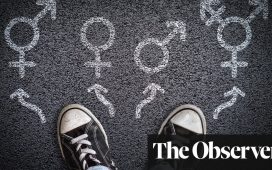Recently, Northeastern University dismissed 11 first-year students after they were discovered together in a hotel room in Boston, in violation of university Covid-19 protocols that forbid crowded gatherings. The students were informed that they were no longer part of the university community for the fall semester and – most notably – would not get their $36,000 tuition refunded.
“Northeastern and its community of students, faculty, and staff take violations of health and safety protocols very seriously,” said Madeleine Estabrook, the senior vice chancellor for student affairs, in a university news story. ‘Those who do not follow the guidelines … are putting everyone else at risk.” The university has said the students have the right to contest their dismissal at an expedited hearing.

Northeastern University recently dismissed 11 first-year students for violating university and … [+]
As many universities across the country try to control Covid-19 infection clusters on and off-campus after reopening, a number of administrators point to errant student behavior as the reasons for the surge. The University of North Carolina at Chapel Hill blamed off-campus activities by students for a spike in Covid-19 cases, which eventually led to a pivot to online classes from in-person instruction and, after a week of classes, undergraduates being sent home. A first-year Bowdoin College student was also asked to leave campus for repeatedly ignoring quarantine guidelines, just one day after moving onto campus, according to the college’s student newspaper. Later, 20 New York University students were suspended for breaking the university’s new coronavirus policies.
“Please don’t be the next. Avoid parties and bars,” the school said on Twitter. “Wear a mask. Keep your distance.”
No matter how vigilant the testing, how socially distant the classroom seating, it has become apparent that, without the complete cooperation of students in restricting their own behavior, university re-openings may be destined to fail. In light of what’s at stake, how strong-armed can universities be when it comes to disciplining students? How enforceable are pandemic-related policies regarding the curtailment of student behavior?
“Enforcing conduct policies is not new for colleges and universities,” said Amy Foerster, partner at Troutman Pepper Hamilton Sanders LLP in its Harrisburg, Pennsylvania office and Co-Chair of the firm’s Higher Education Practice Group. “Because Covid-19 is so new, we assume all of this is new, but colleges and universities have long histories of investigating misconduct and holding students accountable.
“From what I’ve seen, schools have done a good job conveying their Covid-19 related conduct expectations to students,” Foerster continued. “So, when students come to campus, they’re doing so with eyes wide open. They knew their campus life would look different this fall and what was required in order to remain a member of that community. These rules are just as binding as those that prohibit cheating, assault and other forms of misconduct.”
Due to often-large student populations and the nature of the coronavirus, however, enforcing policies in a fair and equitable fashion may prove to be challenging. In most cases, cheating and other more traditional violations of a school’s policy do not have the potential to affect dozens or even hundreds of other students.
“Where you can run into trouble in a very real legal sense is you don’t get to cherry pick the students upon whom you enforce a policy,” said Neal Hutchens, a higher education law expert at the University of Mississippi.
“If you suspend a group of students for violation, but then those students can show the university was aware that groups of students in Greek life, for example, did the same but weren’t taking similar action, then you’ve got unequal enforcement,” Hutchens said. “If you’re going to dismiss one student for violating a policy, you need to dismiss all the students that have done the same.”
In addition, the specifics of the events that led to an infection cluster need to be examined in order to properly enforce regulations or to implement a penalty.
“There could be a scenario where a student invites a few friends over to their house and asks they wear masks,” said Christopher Schmidt, a trial and class action lawyer who heads up the higher education practice at Bryan Cave Leighton Paisner LLP in St. Louis. “But one of them invites their own friends and all of a sudden you’ve got 30 strangers at the house. Maybe that initial student should have called the police on their own gathering but you can envision the need for due process, that the right to be heard is important.”
With concerns about universities becoming “super-spreaders” to their local communities, the clash between policies that restrict behavior and the reality of student life are expected to continue, not only for the fall semester but likely into the spring.
“Presumably since the beginning of their existences universities have expelled or dismissed students because they violated the code of conduct, so we assume that many of these universities, especially the truly established or well-known ones, have pretty airtight policies,” said Schmidt. “But I would say we’re in uncharted waters as it relates to Covid, as well as how a policy that relates to basic hygiene and safety protocols interacts with one that was based on something else.”


